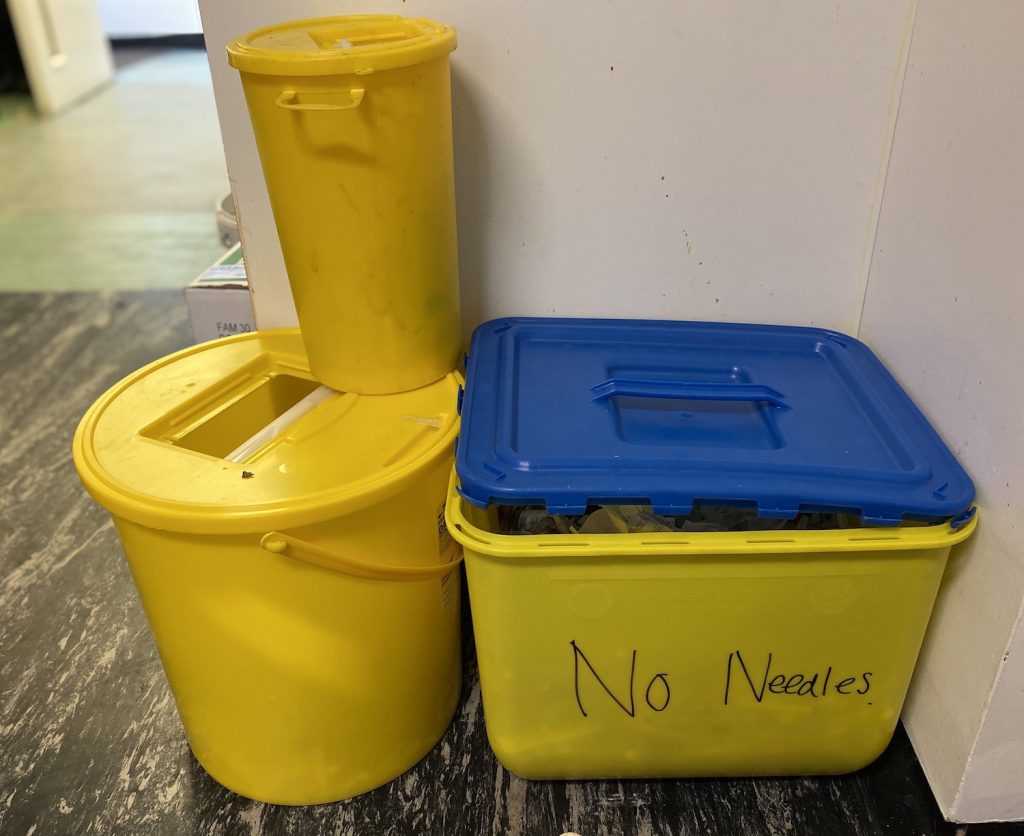Vets and farmers urged to work together on pharma waste
9th November 2020
Ceva Animal Health has put together some top tips for farmers on the best way to dispose of pharmaceutical waste
Ceva Animal Health has put together some top tips for farmers on the best way to dispose of pharmaceutical waste
The move follows concerns that some current practices could be a threat to wildlife and the environment.
Jon Mayer, farm veterinary surgeon at Park Issa Vets, comments: “Clinical waste can be mis-managed on farm. This poses a threat to health and safety where broken glass or sharps can harm animals and humans.
“Correct disposal minimises this risk and prevents environmental contamination, whilst keeping farms in line with assurance standards. Some veterinary practices may offer clinical waste bins where the disposal is usually included in the price.”
A recent survey by Ceva found that 60 per cent of vets believe that some of their clients may be disposing of pharmaceutical waste in domestic or commercial waste bins.
In addition, while vets were aware that both glass and shatterproof plastic vials are incinerated, over 65 per cent of those questioned believed that glass vials were more environmentally friendly.
Ceva, however, says its CLAS (Ceva Layered Anti Shatter) shatterproof plastic vials have 33 per cent less impact on the environment from cradle to grave.
Ceva’s top tips:
- Don’t dispose of pharmaceutical waste in the domestic rubbish bin – this goes to landfill and contaminated containers can leak unused medicine and be a threat to wildlife
- Don’t put pharmaceutical waste in the recycling bin – bottles and plastics containing used medicines cannot be recycled and must be incinerated. Disposing of them in the recycling bin may put council/plant workers at risk
- Don’t throw used medicines bottles onto the farm or bury them. As with domestic waste sites, the leakage of unused medicines can be very harmful to wildlife
- Dispose of pharmaceutical waste in a leak proof plastic box that sits near the medicine cabinet; this will make it easier (and less messy) to return to the vet or waste disposal company and can be rinsed and reused
- Don’t allow the pharmaceutical waste box to overfill – glass bottles on the top may break and cause contamination of the dairy/medicine storage area
- Do contact your vet to find out the best way to dispose of pharmaceutical waste. Some practices offer a service for disposing of the waste (and may charge a small fee) or you can contact a local waste disposal company directly for further information
- Do remember to have a separate sharps bin – all needles for injection and any blades used will need to go in the bin once used. Needle stick injuries are very common amongst farm workers and can cause anything from small cuts to minor infections and even sepsis in extreme cases
- Do ask your vet about alternative packaging, for example CLAS vials, where appropriate, for prescribed injectable products. These CLAS vials are shatterproof and the plastic bottle is lighter, less likely to break and incinerates at a lower temperature than glass.

